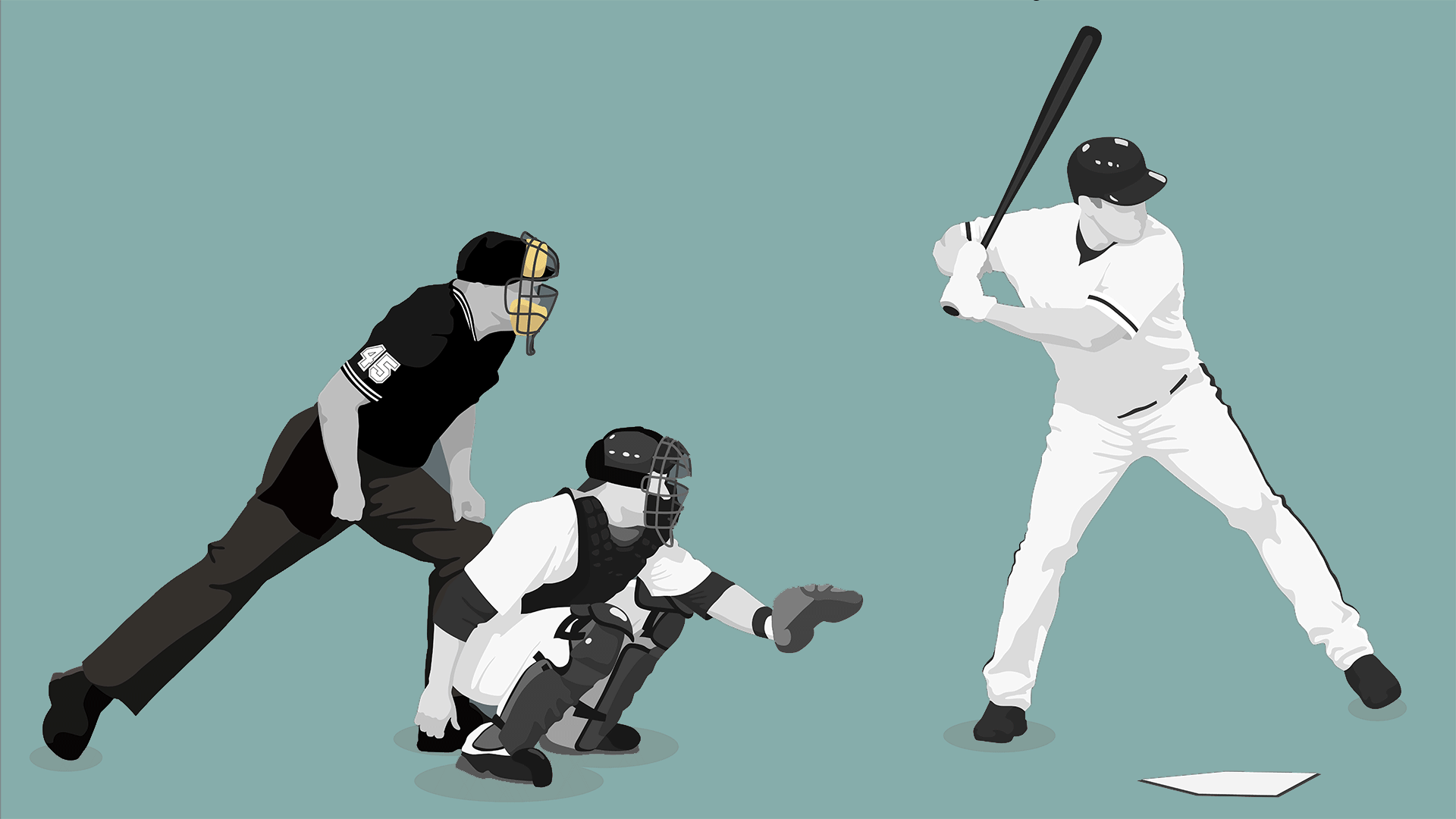- May 29, 2025
- By Graham Binder
Much like the peanuts and Crackerjack in a fan’s hand or the freshness of a pitcher’s arm, the attention span of umpires at an MLB game is a limited resource, according to a new economics study led by a University of Maryland professor.
The new first-of-its-kind research, published in April in The Economic Journal, may also help improve general job productivity and decision-making under stress in settings beyond baseball.
Jim Archsmith, an assistant professor in UMD’s Department of Agricultural and Resource Economics and lead author of the study, found that umpires give more attention to high-stakes decisions, but that doing so early in a game depletes their focus later, making them more prone to mistakes. The researchers also found that umpires conserve attention early in anticipation of having to make more important calls later in the game.
“No one really hassles an umpire for incorrect calls when it’s (a) two balls, one-strike count, but people care a lot when it’s full count and the bases are loaded and they get the call wrong,” Archsmith said. “Those are the situations that generate media attention, and I think there is an aversion toward being in the spotlight for umpires and getting those important calls correct is really built into their utility function. We see it in the data: Calls are much more accurate when the calls are high stakes vs. low stakes.”
The team, which included colleagues at Columbia University, Arizona State and the University of Birmingham, compiled data on more than 3 million decisions made by 127 home-plate umpires in 26,356 Major League Baseball games between 2008 and 2018. It used a high-precision pitch-tracking technology called TrackManZ—familiar to TV viewers as it shows real-time on-screen pitch location—to evaluate the accuracy of those calls.
“We calculate the primary outcome of interest, which is whether or not the umpire is getting a call right in a particular situation,” Archsmith said.
Umpires are much more accurate in “high-leverage” situations, a baseball term that refers to the level of importance on the game’s outcome. Umpires want to be correct more often at such times, especially late in the game.
Archsmith and his team also discovered that short breaks are important as a tool for replenishing attention. He referred to the 20/20/20 rule, which suggests taking a 20-second break every 20 minutes by focusing vision on something 20 feet away. It is intended to prevent screen fatigue. The breaks umpires take between innings seem to have similar benefits, he said.
He emphasized that this is not just a paper about baseball or umpires but professional decision-makers; these qualitative results could apply to everyday jobs that involve repeated decision-making under stress.
“We really care about people’s productivity at work,” Archsmith said. “Paying attention is really important, and oftentimes people are getting mentally tired out. Past effort does deplete your ability to make good decisions in the moment, but also, anticipation of future effort reduces your ability to make good decisions because you’re saving that effort for later.”
He said further research could determine whether there are similar dynamics of attention in professional settings beyond the baseball diamond, at least when it comes to making the hard calls.
